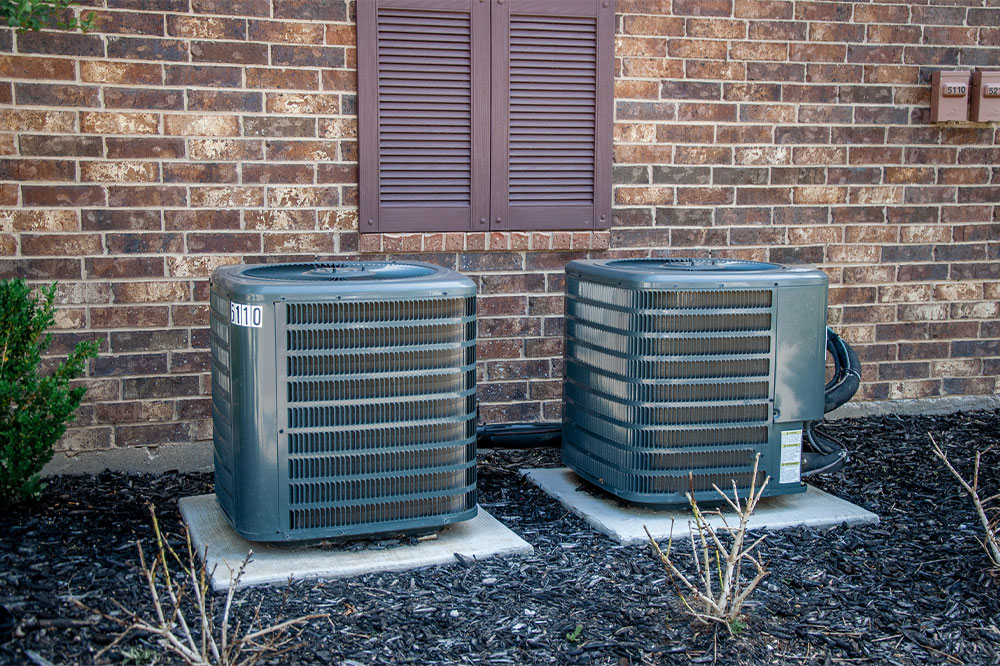Types and Costs of HVAC Systems
An HVAC system is an important component. Not only does it have warming or cooling functions, but it also helps improve the air quality in a building. A good HVAC system is a necessary investment. But before buying one, there are some factors to keep in mind. You need to first check the heating and cooling capacity and its energy efficiency.

What are HVAC systems?
HVAC systems refer to heating, ventilation, and air conditioning collectively. It is used to regulate temperatures in homes and offices. The main goal of this mechanical system is to give you more control over the temperature. A new HVAC system can help you stay warm during winters, and refreshed during summers. In addition to this, these systems help in filtering and purifying the air in your home to keep you healthy. Your home’s humidity also remains at a comfortable level due to the presence of a new HVAC system.
Different types of HVAC systems
There are numerous types of HVAC systems. Each type has its own advantages and benefits.
Ductless system
Ductless split systems, also known as ductless mini-split systems, are made up of an external compressor. The units can be mounted on indoor walls. They are ideal for new spaces in homes or buildings. They are easier to install and give you independant control of the unit.
Split unit
Split systems for heating and cooling are the most common form of HVAC systems in residential structures. They use a standard thermostat to control the temperature of the whole building. These systems have two parts: one for heating and one for cooling.
Heat pump
Heat pump split systems are common in places where it rarely gets below freezing. In place of an air conditioner and a furnace, the system utilizes a heat pump to perform both cooling and heating duties. The major difference between a heat pump and an air conditioner is that the heat pump can be reversed in cold weather.
Window unit
Several types of window air conditioners and heaters can be installed in windows. Despite their small size, these AC units produce significant power. Affordable costs, high energy efficiency, and easy installation are other reasons why this is a popular choice among many homeowners.
Package system
This type of HVAC system is the most specialized. It contains the heating and air units, and is usually kept in an attic or upper storage space. It is ideal for small house owners, as it can also be placed inside the home. Such systems are primarily used in areas with warmer climates since the heating system may not be as powerful as the other types.
Central AC
A central air conditioning unit provides cooling throughout the home. You might require one or more thermostats to control the interior temperature. One major benefit is that multiple rooms can cool at once. This helps in energy savings, as it is more efficient than using multiple single AC units.
The cost of different types of HVAC systems
Replacement costs for an HVAC system will vary, but they typically fall in the range of $5,000 to $10,000. New HVAC systems costs can range from $1,500 to $12,500, depending on the type of system you purchase. Following are the prices for different types of HVAC systems.
Central AC: You may expect to pay between $3,800 and $7,500 for installing a central air conditioning unit.
Window AC: Since window units are compact and less efficient than central AC units, they can cost you between $150 and $500.
Furnace: A furnace can be powered by natural gas, oil, or electricity. Installing one can cost anywhere between $2,000 to $7,000 based on the model you select.
Heat pump: Heat pumps can cost from $4,000 to $8,000 plus installation. They are known to be more energy-efficient than furnaces.
Factors that affect the price of HVAC installation
Energy efficiency
The Seasonal Energy Efficiency Ratio (SEER) is a ratio that’s used to assess the efficiency of air conditioning systems. Here, a unit’s cooling output and total electrical energy during a season is taken into consideration. Higher SEER ratings mean more energy savings.
Size of the unit
The size of a new HVAC system will determine the cooling capacity. A large system will cost you more. However, you do not want to purchase an extremely small system that provides inadequate cooling. Make sure to discuss all things carefully with your provider before choosing the right system size.
Type of system
An HVAC system comes with multiple components that have different cooling capabilities and energy ratings. The type of system and the parts used affect the cost. Talk to your provider to check which type of system is ideal for your home and budget.











